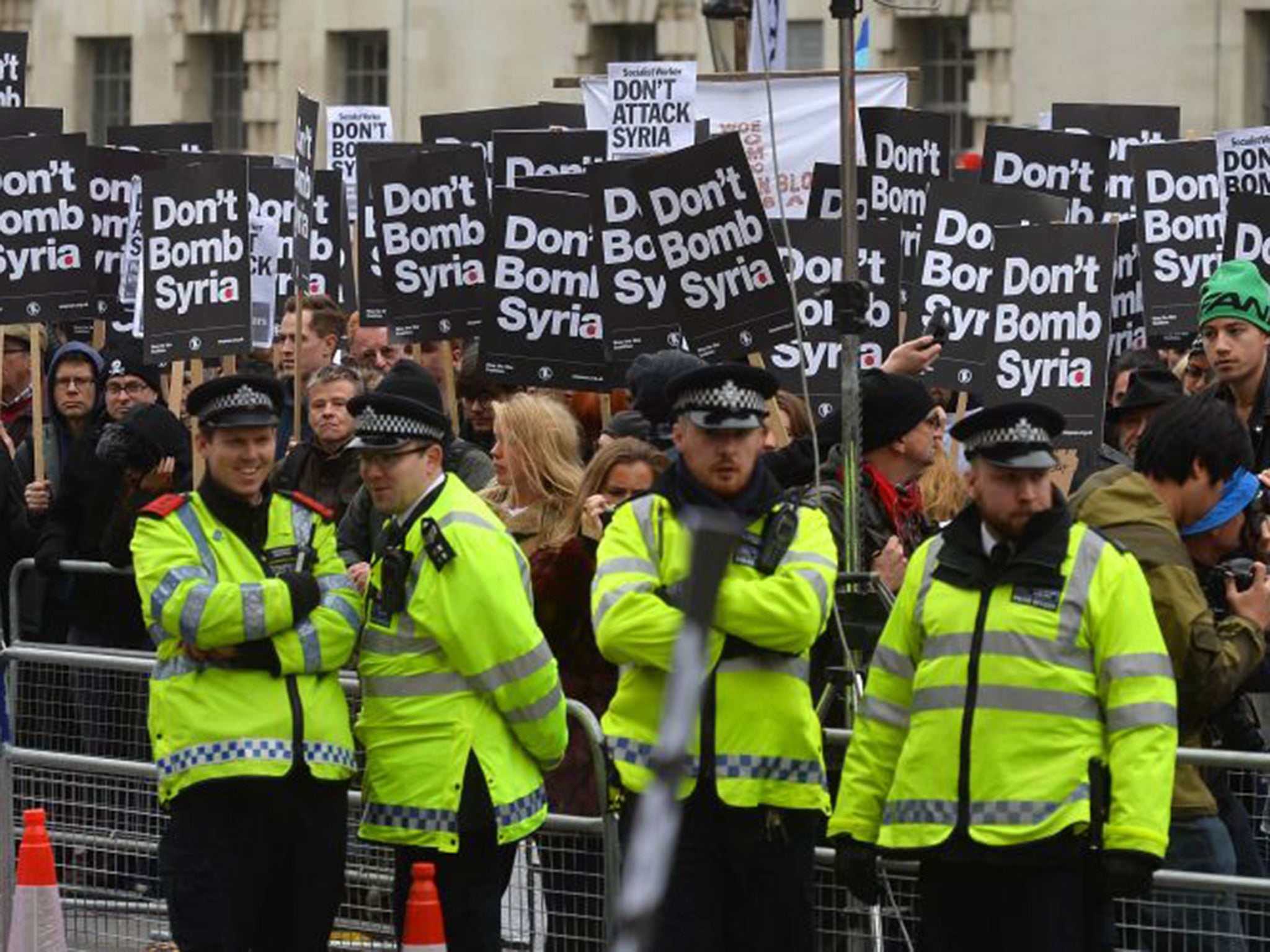Syria air strikes: Our defence against slaughter on our streets is intelligence and vigilance rather than military action abroad
The very complexity of the many-sided conflict in Syria and western Iraq ought to counsel caution

The choices facing the British Government in Syria today are nothing like those in Iraq in 2003. So, although this newspaper led opposition to the invasion of Iraq 12 years ago, and although we are not persuaded of the case for joining in military action this time, the debate is very different in 2015, and needs to be argued from first principles.
We should say at the outset, too, that the argument is more finely balanced this time. Even if Saddam Hussein had had a few crude chemical or biological weapons, a US-led invasion would have been a disaster. It did not have UN authority, wide support or credible allies in Iraq. Above all, it did not have a credible plan for administering a broken, religiously divided state afterwards.
There is a better case for the UK to join the international effort against Isis in Syria. It has the blessing of the UN (“all necessary measures”); many countries, including Muslim states in the region, support it (although the Gulf states have stopped their sorties); and there are forces on the ground prepared to fight Isis, even though there is doubt about their capability. Unfortunately, however, there still does not seem to be a plan.
In many ways, Syria is more complex. Isis is not a normal state. There is no doubt after the horror of Paris that it is a threat to us, but military action against Isis in Iraq and Syria may fail to reduce that threat. Our defence against slaughter on our streets is intelligence and vigilance, primarily at home, rather than military action abroad.
The very complexity of the many-sided conflict in Syria and western Iraq, on which Patrick Cockburn has reported so well for this newspaper over the years, ought to counsel caution. As Cole Moreton writes today, the reflex to strike out against Isis after Paris is strong, but it is not necessarily wise. However much we feel the need to express our solidarity with the people of France, mere fellow feeling is not a sound basis for policy. Chris Doyle asks the right question: “Will adding a handful of British warplanes to the crowded skies over Raqqa be tokenism or part of a compelling, inexorable drive to save Syria and end Isis?” To which the answer is not just that the extra air power is unnecessary but that the focus of policy should be on everything else.
Because the biggest mistake would not be for the RAF to join in air strikes in Syria, for which MPs are likely to vote this week, but for MPs to think that they had done their bit. Nor should those MPs who feel that the case for extending military action has not been made argue that Britain should simply keep out of the region. We are involved in the region and we should be, but our priority should be the humanitarian effort. As Sir Michael Graydon, the former Chief of the Air Staff, wrote in The Independent on Sunday last week, the important task ought to be to support and protect the refugees around Syria. Sir Michael advised the Government on no-fly zones in Iraq and Bosnia, and proposes something similar in Syria.
That has not been possible so far, but the shift in global alliances after the downing of the Russian airliner out of Sharm el Sheikh and the murders in Paris means that new options may be available. But that would need troops on the ground as well as air support, and the purpose of diplomacy now should be to identify them.
That is the sort of plan that has been missing so far. Britain has a good record of supporting Syrian refugees in camps in neighbouring countries, and we should build on that. If it is possible to extend safe havens into Syrian territory, that would be a plan worth supporting. If safe havens needed military protection, that would be a case for the use of force over Syria, but until such a plan exists, we believe most emphatically that the case for Britain to join in military action in Syria has not been made.
Join our commenting forum
Join thought-provoking conversations, follow other Independent readers and see their replies
Comments
Bookmark popover
Removed from bookmarks